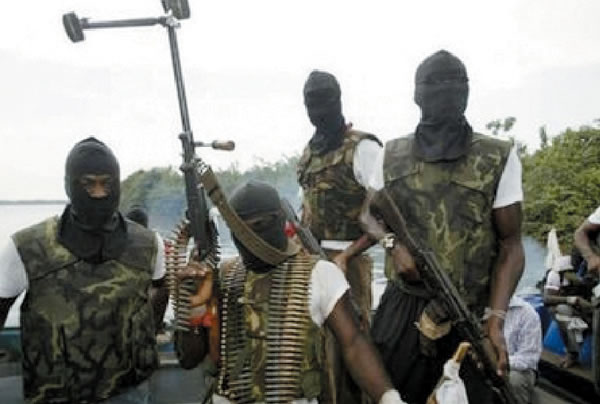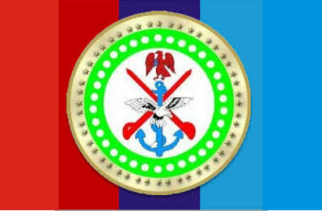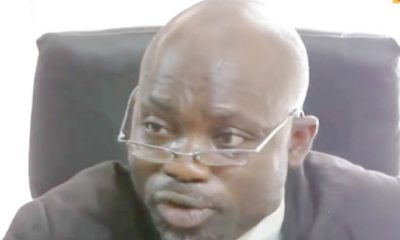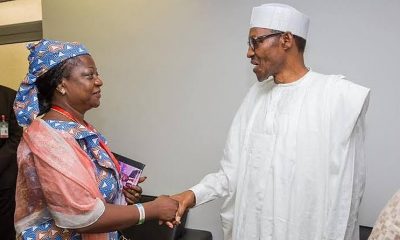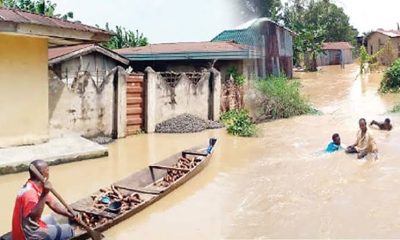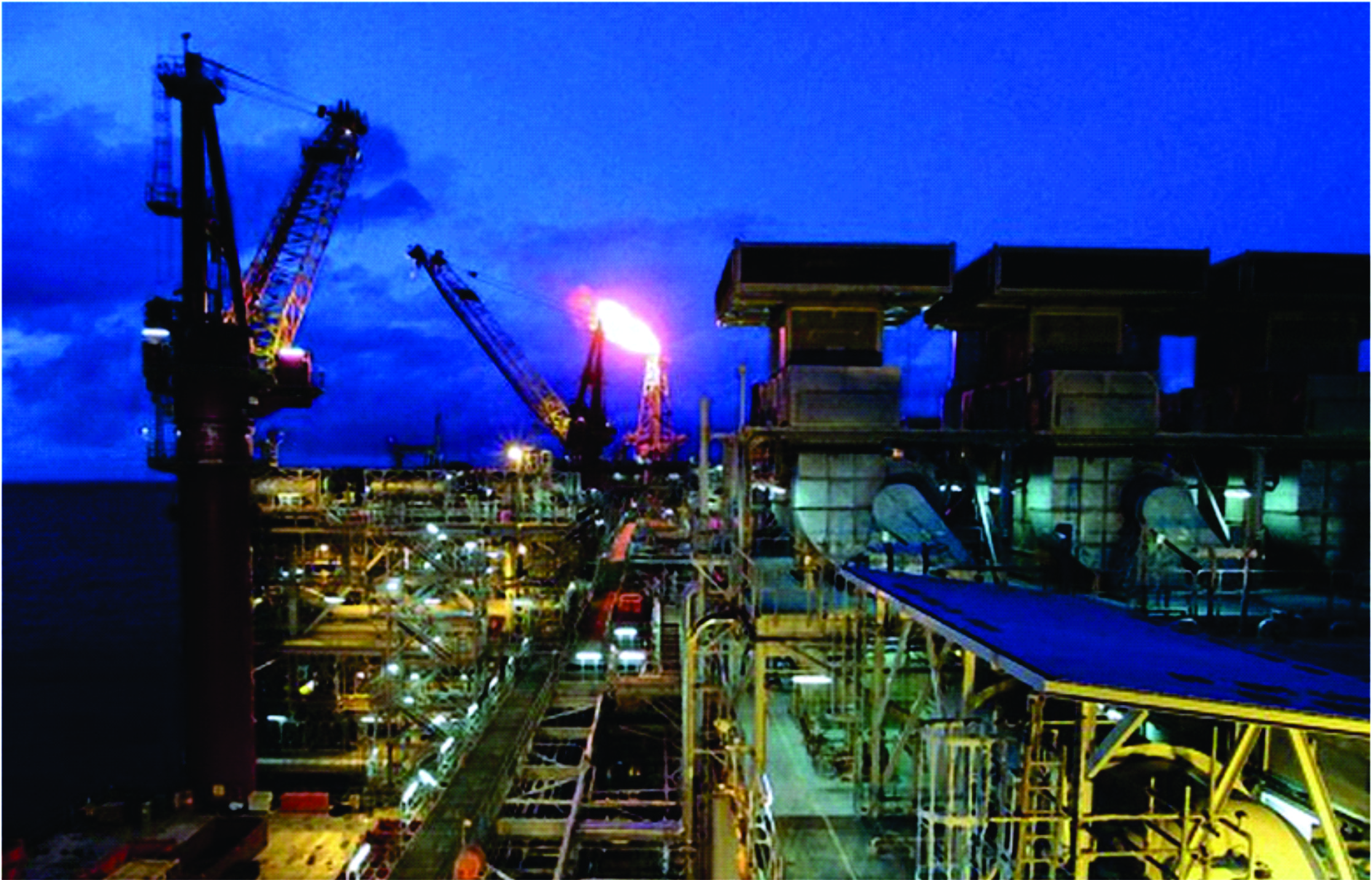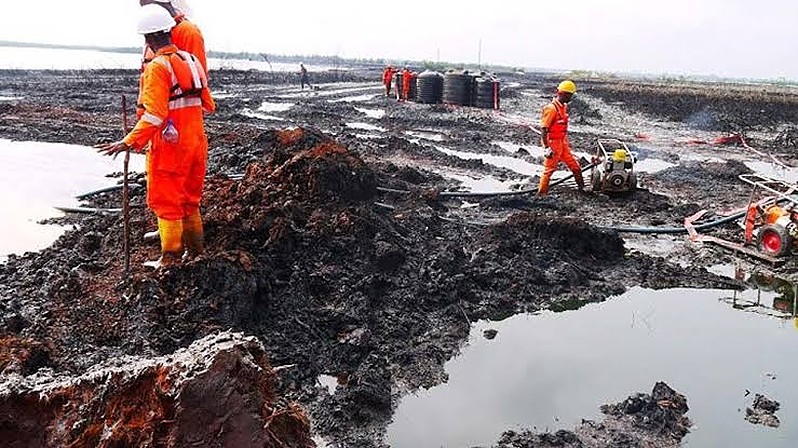A charm offensive led by acting President Yemi Osinbajo has kept the uprising at bay, with renewed amnesty payments buying calm in the creeks, helping boost production to around 1.7 million barrels per day (bpd) from a low of 1.4 million bpd in August last year.
But now those in the Niger delta say the fragile peace is under strain as the Nigerian government takes time to carry out reforms ranging from the construction of a maritime university to cleaning up oil spills.
“The boys are impatient and they have been disturbing me with a series of telephone calls and messages, with some of them even giving notices to disown us,” Niger delta leader Edwin Clark, who has been negotiating with the Nigerian government, told AFP.
As frustration has grown, Niger delta leaders have threatened to quit the talks, a new militant group announced it will attack pipelines and oil thieves are siphoning off crude in sabotage that is dragging down production, albeit not as dramatically as bombings.
“Government announced in March there will be $10 billion of investment in the Niger Delta, but of course money is tight and it will be a while before people notice any investment, so there is bound to be pressure,” said Gail Anderson, lead Nigeria analyst at energy consulting firm Wood Mackenzie.
“As long as money keeps flowing then the militants will stay quiet. If the money stops flowing then things could flare up again.”
The Pan Niger Delta Forum (PANDEF), a group of regional stakeholders, had issued a November 1 ultimatum, saying if its demands aren’t met it will pull out of peace talks with government.
But the ultimatum was withdrawn after the group met with government representatives led by Osinbajo last week.
The presidency said in a statement that long-standing grievances were being addressed, including the opening of the maritime university by next year and approval of two modular refineries for each of the states in the region.
ALSO SEE: Niger Delta militants express disappointment in leaders
The annual budget for ex-rebels was doubled while funds have also been approved for the clean-up of devastated Ogoniland.
Yet others are calling for an immediate end to the negotiations and a return to violence.
On Sunday, a new militant group called the Niger Delta Revolutionary Crusaders announced they would begin fresh attacks on September 31, saying that Clark and PANDEF are failing the region.
“Our grievance with government is that after the consolatory statement of the government by Professor Osinbajo, nothing is on ground to show sincerity by government,” the Crusaders spokesman said in a statement
There have been a rising number of attacks on soldiers patrolling the creeks, a violent reminder of simmering tension in the oil rich but poverty-stricken south.
From April to July, five marine policemen and seven soldiers spread across the Niger delta have been killed during attacks, while at least 15 have been injured.
“They don’t have the support of communities anymore, so you can’t carry out the militant attacks, you can’t bomb pipelines. So the only option is to steal and we’re seeing a resurgence of that,” said Ecobank oil analyst Dolapo Oni.
Last week, Shell shut its Trans Niger pipeline because of a “leak” — the preferred euphemism in Nigeria for theft.

 Entertainment5 days ago
Entertainment5 days ago
 Comments and Issues1 week ago
Comments and Issues1 week ago
 Comments and Issues1 week ago
Comments and Issues1 week ago
 Health7 days ago
Health7 days ago
 Comments and Issues1 week ago
Comments and Issues1 week ago
 Health3 days ago
Health3 days ago
 Football7 days ago
Football7 days ago
 Football7 days ago
Football7 days ago
